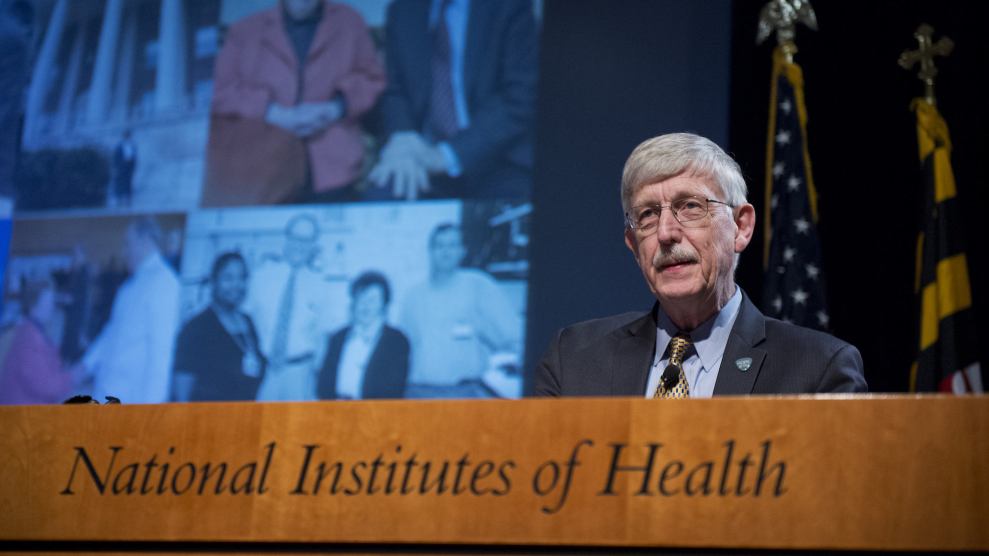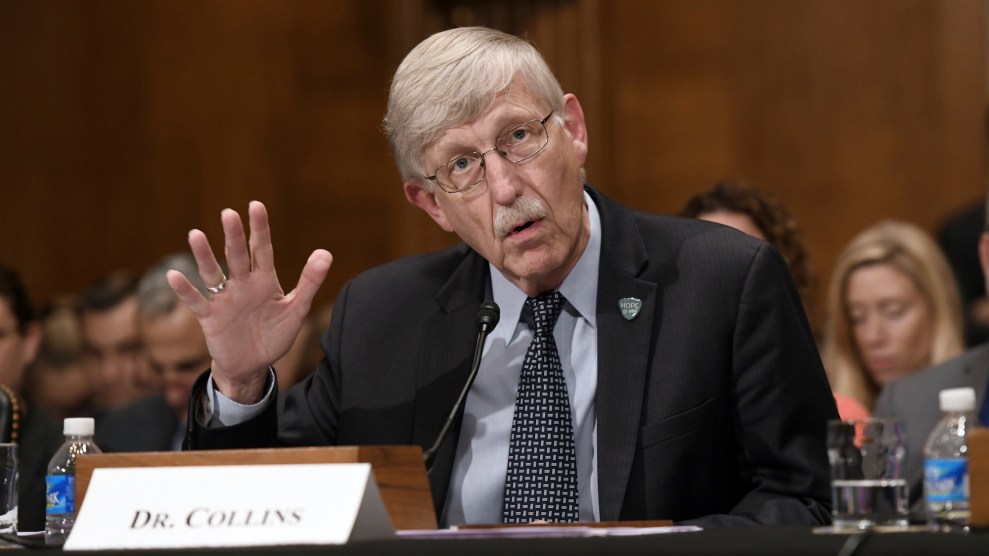
Dr. Francis S. Collins, Director of the National Institutes of HealthTom Williams/ZUMA
Update 6/15/18: The National Institutes of Health announced on Friday that it is canceling the controversial study.
The National Institutes of Health (NIH) has put the brakes on a controversial study that was designed to investigate whether alcohol may have cardiovascular benefits for some people. The study was funded with more than $60 million in contributions from alcohol companies. The New York Times reported in March that officials at the National Institute on Alcohol Abuse and Alcoholism, an arm of the NIH, had solicited those industry donations in violation of NIH policies.
NIH Director Francis Collins told members of a Senate subcommittee on Thursday of the research agency’s decision.
In the wake of the Times story, public health advocates had called on NIH to put an end to the study, arguing that it was hopelessly compromised by industry involvement. They said the study was clearly designed with a predetermined outcome to favor the industry’s agenda, and that it might put participants at risk. People in the 7,000-member study would be randomly assigned to consume one drink daily for six years, which is enough to slightly raise the risk of breast and other cancers.
Collins said Thursday that the NIH had ordered researchers last week to stop enrolling new participants and to halt any work on the study until the agency completed a thorough review of its origins and design. “There were sufficient concerns about that study that I would like to tell you that, one week ago, we suspended enrollment in that study on the moderate effects of alcohol on cardiovascular health while we continue the investigation and make a decision about whether the study is, in fact, still worth pursuing,” Collins said. “For NIH, our reputation is so critical, and if we are putting ourselves in a circumstance where that could be called into question, I felt that we had to look at that very seriously and come up with another strategy.”
The NIH task force looking into the study is expected to produce a report in mid-June.
















